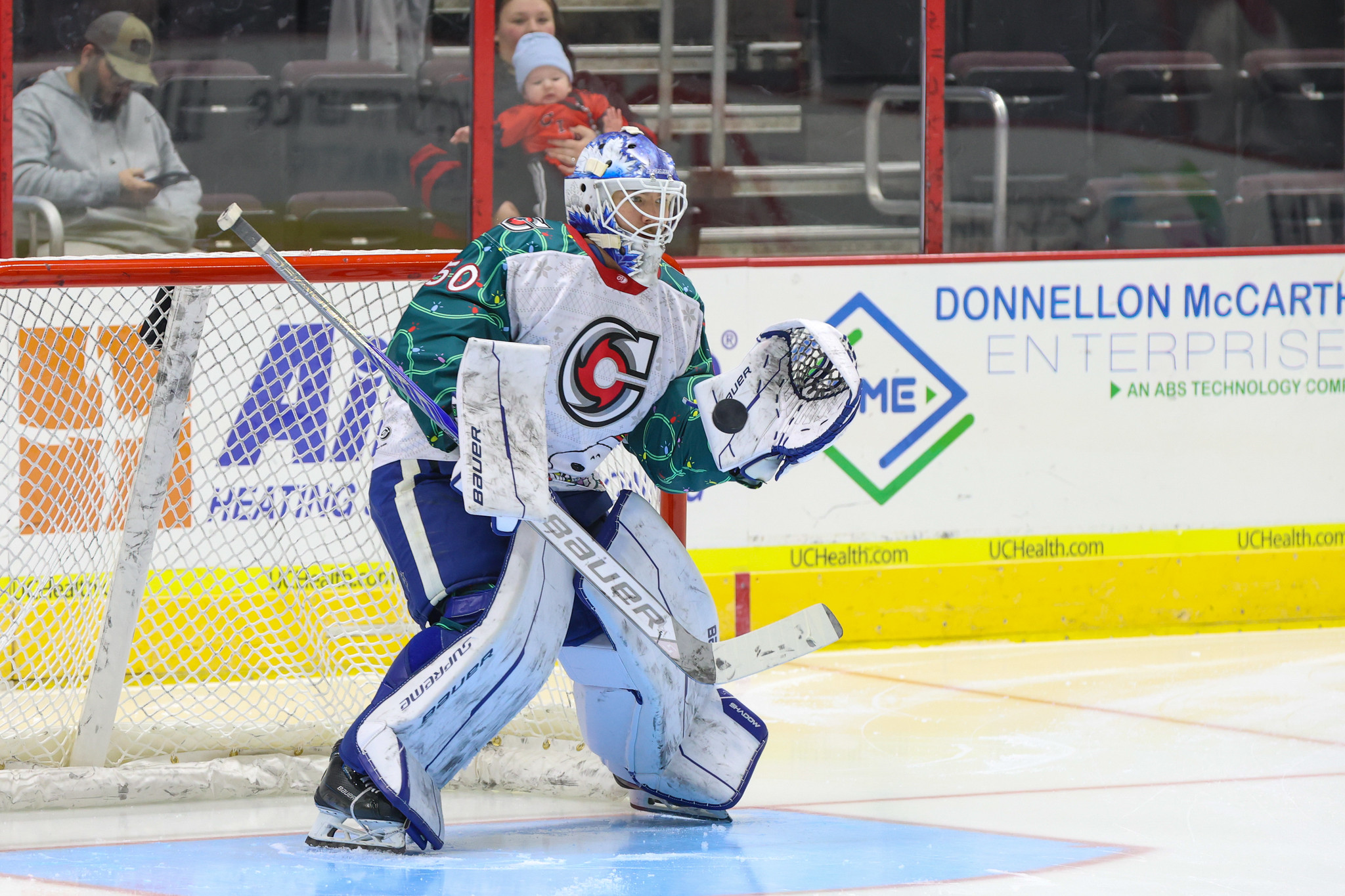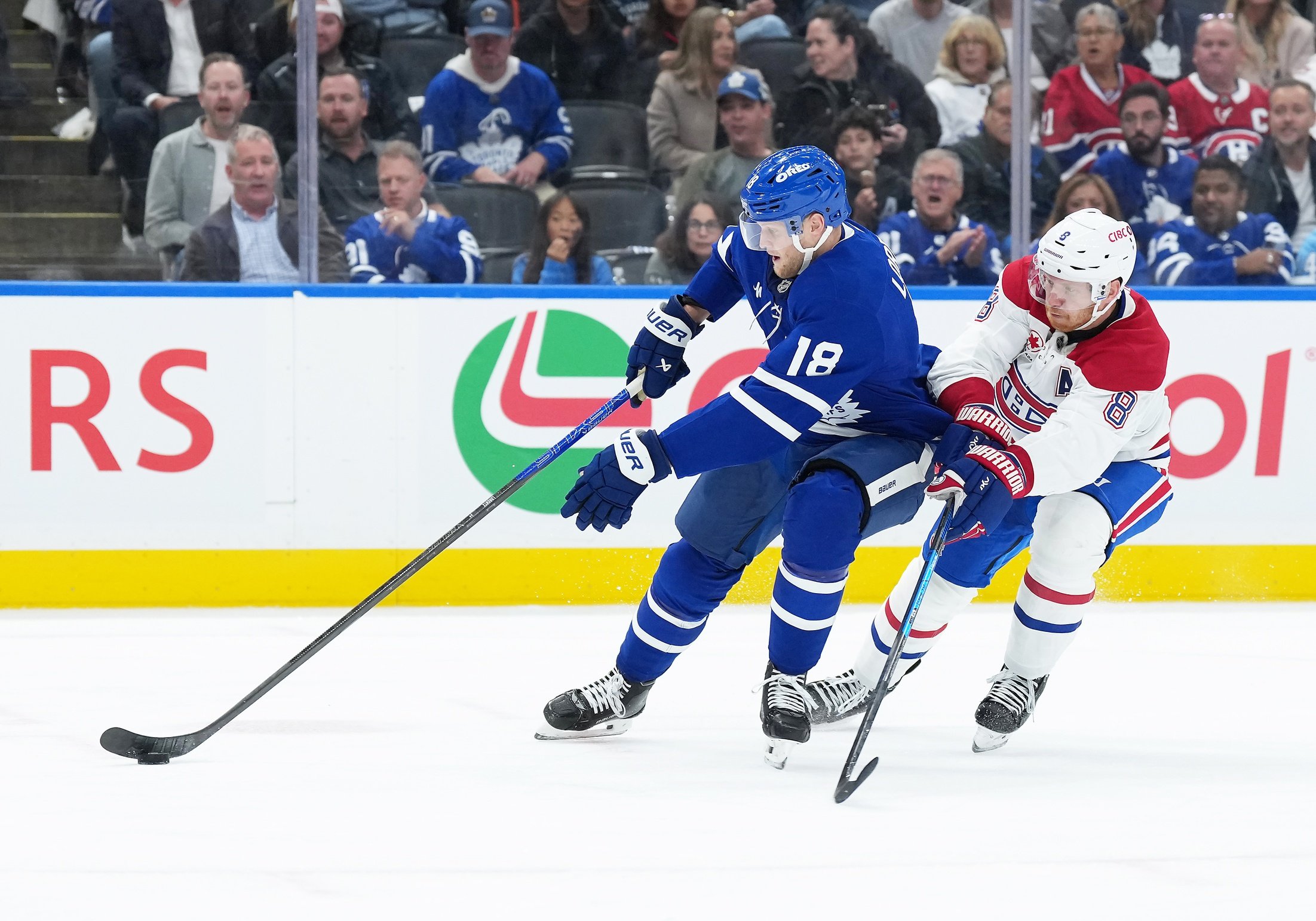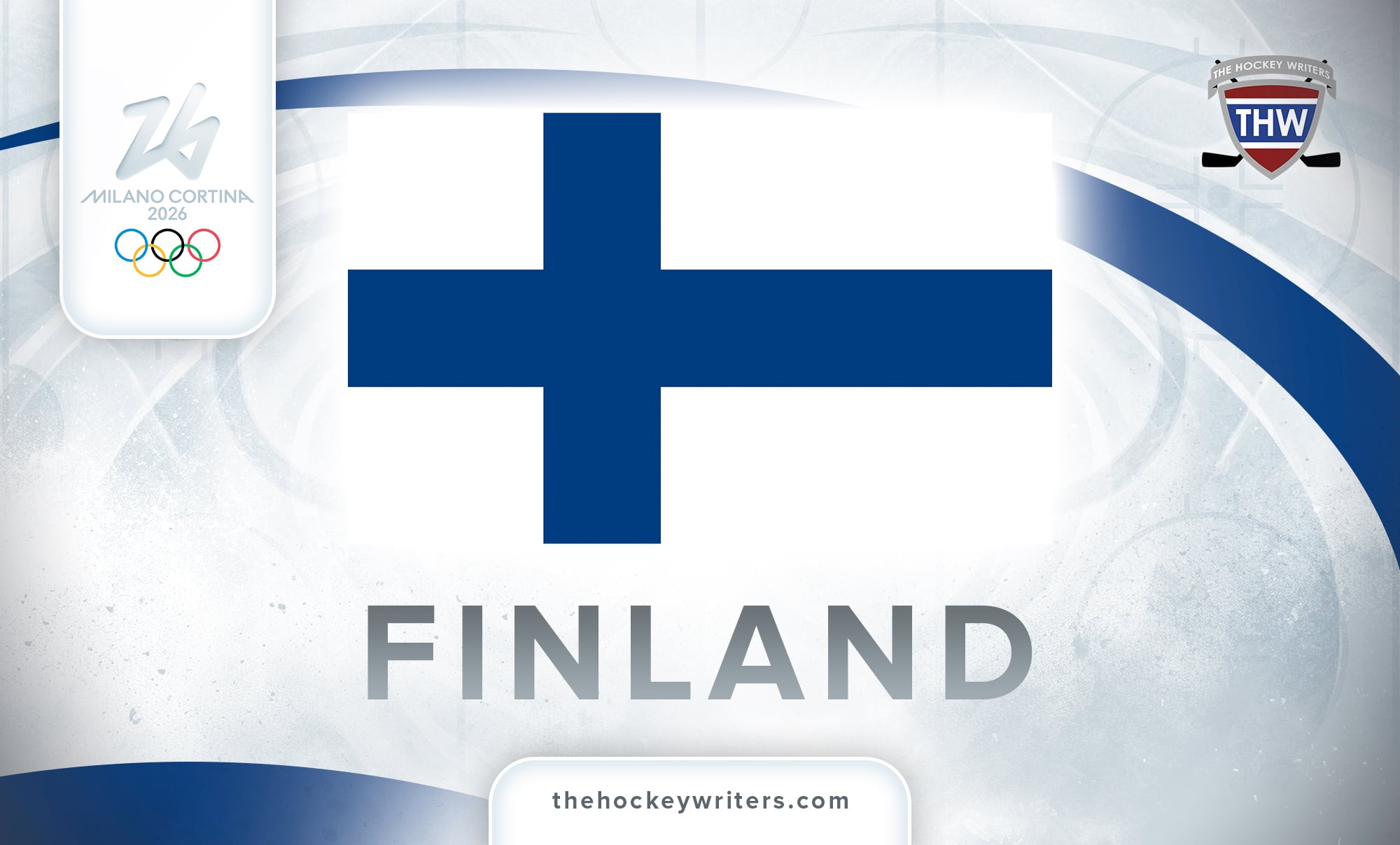Russian goalie Vyacheslav Peksa is at his second year within the Toronto Maple Leafs organization, who picked him in the sixth round of the 2021 NHL Entry Draft. He played mostly at the ECHL level, with the Newfoundland Growlers and the Cincinnati Cyclones. He also had a couple of games with the Toronto Marlies of the AHL. In this translated interview, Russian goaltender Peksa opens up about life in North America, his development within the Toronto Maple Leafs system, and what the future might hold.
** You can read the original interview by Dmitry Lyovin at metaratings.ru in Peksa’s native Russian here **
The goalie spent his last couple of years within the Toronto organization. He doesn’t have a clear path in front of himself for the next future, however. “I’m just resting for now,” he confirms. “I still have one year left on my contract, and things will become clearer in June or July. I don’t like to make predictions in advance.”
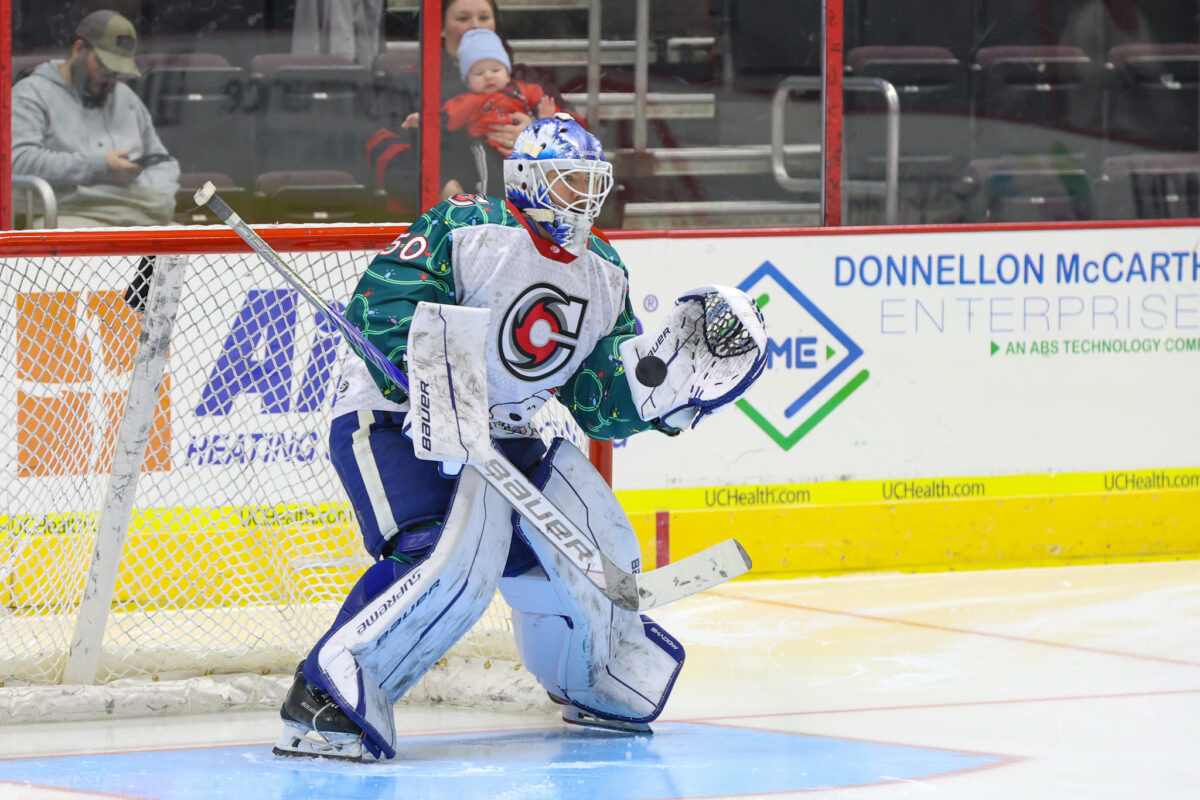
This winter, however, he wanted to return to Russia. “There was such a moment,” Peksa says about that period. “I spoke a lot with [Russian coach] Artyom Anisimov, since he coached me in Kazan. There was real interest from Ak Bars, but the club couldn’t reach an agreement with Toronto. In any case, the second half of the season in America went much better for me than the first, so I proved to myself that I can play at a high level.”
Differences between Russia and North America found their way very quickly as the goalie approached the rink for the first times. “Coaches are different,” he explains. “In Russia, they prefer the old-school goaltending style and give the same set of drills. Both at Ak Bars and Irbis, they followed the traditional training approach. In North America, there are more creative drills: with resistance bands or a huge 10-kilogram medicine ball, for example. That’s something they don’t do in Russia. As my coach Kirill Korenkov says, a goalie is 80% mentality and only 20% physicality. In Toronto, we have four coaches across the whole system. You can only work with all of them at the same time during training camp.”
Related: Maple Leafs Finally Have Solid Goaltending Depth in Their Organization
Playing and practicing in different environments is important when a player is young, and a change of scenery made Peksa a better goalie. “I think technique is the most important. When I first arrived overseas, I had to make big improvements because I didn’t have much technique,” he laughs. “In North America, all the skaters have great, sharp shots, so you need to react to them quickly. In those situations, only positioning and technique help.” And most importantly, do those shots hurt? “Of course,” Peksa firmly says. “They haven’t invented gear yet that prevents bruises. The guys shoot at a high level.”
Peksa didn’t find a difficult environment in Toronto, despite there being enough good netminders. “In the summer I trained a bit with Joseph Woll, Dennis Hildeby, and Matt Murray – Toronto’s main goalies. All of them are friendly, smiling, no one pressures anyone. If there’s competition, it’s only in your own head. You always want to prove something to yourself.:
Peksa Moving Up the Ranks in North America
Peksa has spent most of his North American career in the ECHL. The league is often compared to the VHL, the second-tier Russian league, as for quality of play. “I think the level of the ECHL is still higher than the VHL,” Peksa explains. “At least for me as a goalie. The thing is, North American hockey is extremely offensive. Good defensemen are the ones who score 60–70 points per season, even with a minus-40 rating. Goalies have it tough in this league because the offense is solid, and there’s practically no defense.” There is also more trash talk and fights. “In America, referees allow players more than in Russia. If they see a situation heating up, they won’t blow the whistle. As for trash talk, there’s a lot of it: during commercial breaks, the skaters constantly yell things at your back, and I try to ‘forget’ the English language at those moments so I don’t react. Of course, there are good guys who are just doing their job.”
Despite not getting many chances to play at a higher level, Peksa kept on playing in the ECHL and develop his game, even if he wanted to return back home during the season. “I want to make it to the NHL,” he admits. “Yes, sometimes you have to take a step back and make a tough decision, so I don’t rule out the possibility of ending up back in Russia. Right now, it’s too early to talk about that — problems should be dealt with as they come. I’ll start thinking later about what to do next season.”
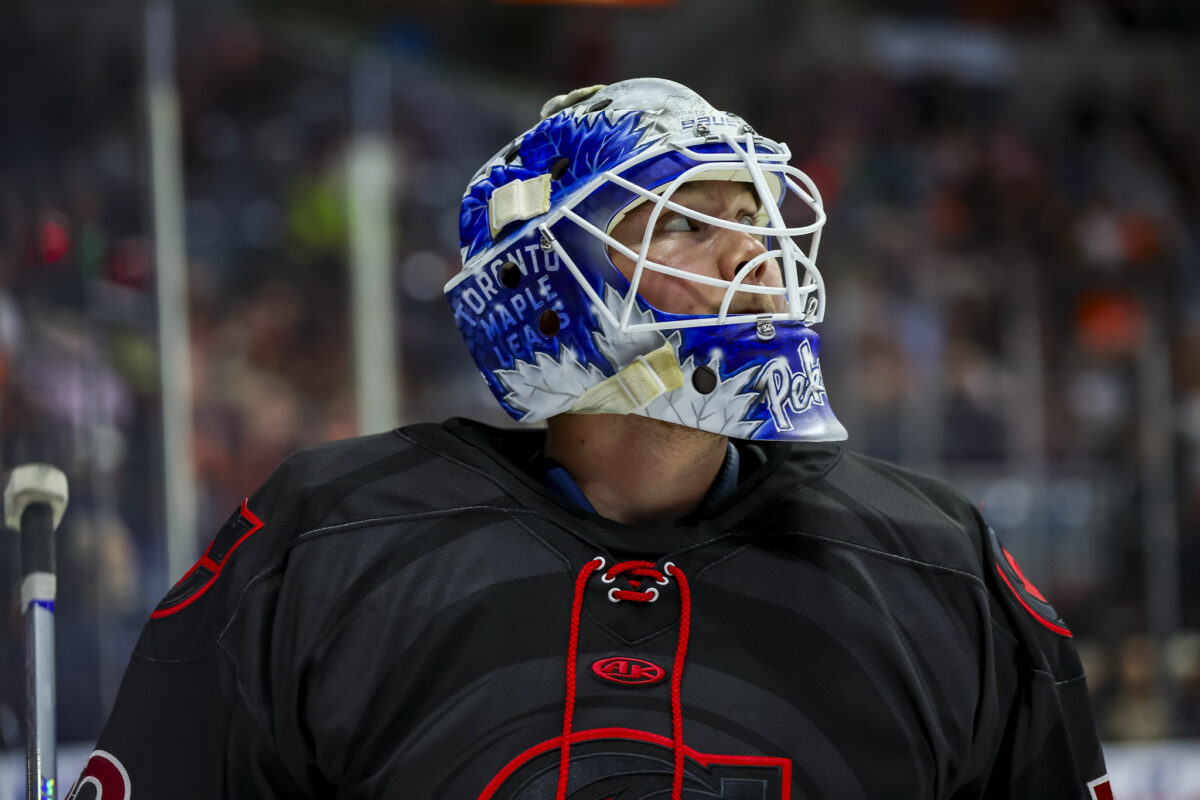
Moving to North America isn’t always easy to Russian players, but Peksa didn’t have any particular problem in adaptating to his new environment. “Honestly, I felt no culture shock,” hw confirms. “I didn’t have sky-high expectations. I wasn’t particularly interested in conquering the country or fully exploring it. I only agreed to go out if I was invited by teammates. Hockey remained the most important thing for me, so I mostly just went home after practice and spent time alone. Surprisingly, I never felt bored.”
He also played two games in the AHL this season. However, that wasn’t enough to get a good impression about the league. “I played only one full game. It seemed to me that the level of defense there is much higher than in the ECHL, because more skilled defensemen play in the AHL. In general, it’s a league you can and should play in, but it all depends on whether you’re given a chance or not.”
Another difference the goalie quickly spotted between home and his new environment is the fans. “They come to games to have a good time. For example, even if the team is losing by a large margin, the fans stay until the very end to support their favourite club. That doesn’t happen in Russia,” he says. “Maybe it’s because beer is allowed to be sold at games in America — fans are just enjoying themselves, relaxing, and having fun.”
Differences, Rituals, & Goalie Goals
Goalies often have rituals or superstitions, but Peksa doesn’t seem to have any. Instead, he was impressed by one of his teammates with the Marlies. “I can tell you about our forward, [Joseph] Blandisi,” the netminder explains. “When things aren’t going well for him during a game, he puts his stick in the trash can during the intermission. The guys spit in there, pour stuff on it, throw things in — and Joseph takes the stick back out without even wiping it off. That’s his ritual to attract ‘garbage goals.’ It was new to me — I’ve never seen anything like that in Russia.”
Scoring goals as a goalie is always popular, but the Magnitogorsk, Russia, native doesn’t seem so attracted to it. “Scoring goals isn’t really a goalie’s job,” he confirms. “We have different responsibilities. If it’s a six-on-five situation, I’d rather send the puck off the glass than aim for the net. It’s an unnecessary risk. Even if you score, people will forget about it in a year.”
Moreover, Peksa in North America put up some much-needed mass. “Two years ago, my playing weight was 74 kilograms, now it’s 88,” he says, confirming that he’s now more than 190 pounds. “The team told me I needed to bulk up because I was pretty skinny. Well, here you go — now I’m stronger. I feel much more comfortable at this weight, because at 6-foot-3, it’s hard to be under 80 kilograms. It’d be much harder on the ice.”
Mental strength is key for goalies. “It’s important to pursue your goal no matter the obstacles,” Peksa says. “If you’re doing something — do it all the way.” He’s also clear on his main goal. “I want to establish myself in the NHL. First of all — just play one game.” If he keeps on progressing that way, he may not be so far from it.


